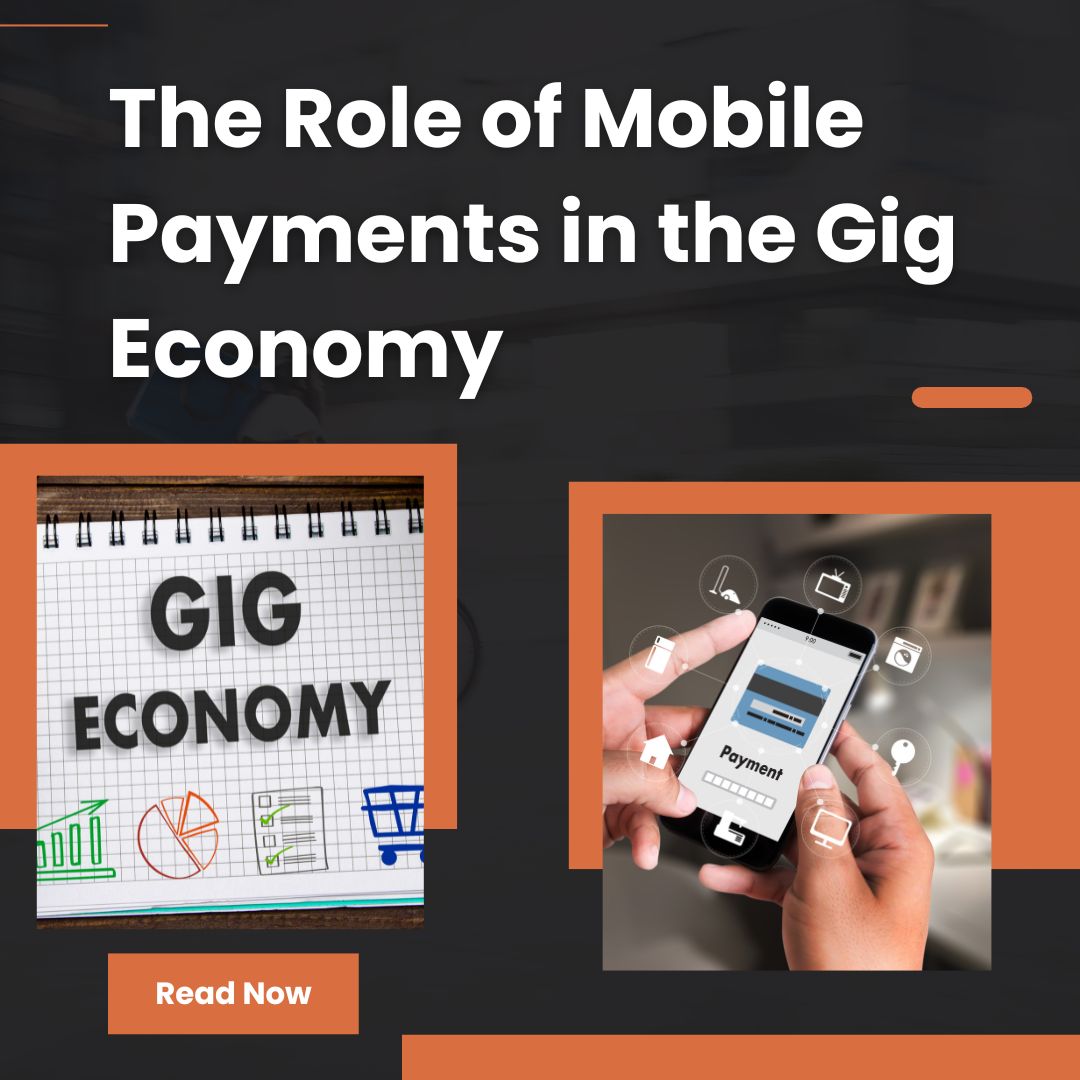The gig economy has experienced explosive growth in recent years, transforming the way people work and earn money. Fueled by digital platforms and the desire for flexible work arrangements, gig workers now make up a significant portion of the global workforce. In parallel, mobile payment solutions have revolutionized the way transactions are conducted, becoming an essential tool in the gig economy. This blog explores the pivotal role mobile payments play in this dynamic and evolving sector. A New Era of Work The gig economy encompasses a wide range of freelance and short-term jobs, from ride-sharing and food delivery to freelance writing and graphic design. This shift towards gig work offers flexibility and autonomy, allowing individuals to choose when, where, and how they work. However, with this flexibility comes the need for efficient, reliable, and fast payment methods, which is where mobile payments come into play. Speed and Convenience One of the most significant advantages of mobile payments for gig workers is the speed at which they can receive their earnings. Traditional payment methods, such as checks or bank transfers, can take days or even weeks to process. Mobile payment platforms like PayPal, Venmo, and Cash App enable instant transfers, ensuring that workers have immediate access to their funds. This immediacy is crucial for gig workers who rely on timely payments to manage their finances and meet daily expenses. Financial Inclusion Mobile payments also play a critical role in promoting financial inclusion. Many gig workers may not have access to traditional banking services due to various reasons, such as poor credit history, lack of documentation, or living in regions with limited banking infrastructure. Mobile payment platforms bridge this gap by providing an accessible and user-friendly alternative. With just a smartphone and an internet connection, gig workers can receive, manage, and spend their earnings seamlessly. Security and Transparency Security is a top concern for gig workers handling their finances through digital platforms. Mobile payment solutions offer robust security features, including encryption, two-factor authentication, and fraud detection systems, which help protect users’ funds and personal information. Moreover, these platforms provide transparency through detailed transaction histories, allowing workers to track their earnings and expenditures accurately. This transparency is particularly valuable for managing taxes and budgeting. Flexibility and Integration Mobile payment platforms are designed to integrate seamlessly with various gig economy platforms. Whether it’s Uber, Lyft, DoorDash, or freelance marketplaces like Upwork and Fiverr, these payment solutions are tailored to meet the specific needs of gig workers. This integration ensures a smooth and efficient payment process, eliminating the hassle of manual invoicing and reducing administrative overhead. Enhancing Business Opportunities For many gig workers, mobile payments are not just about receiving money; they also enable new business opportunities. Features like quick invoicing, easy fund transfers, and payment tracking allow gig workers to operate more professionally and efficiently. For instance, a freelance graphic designer can quickly send invoices to clients and receive payments instantly, improving cash flow and enabling the pursuit of more projects. Adapting to a… Continue Reading The Role of Mobile Payments in the Gig Economy
